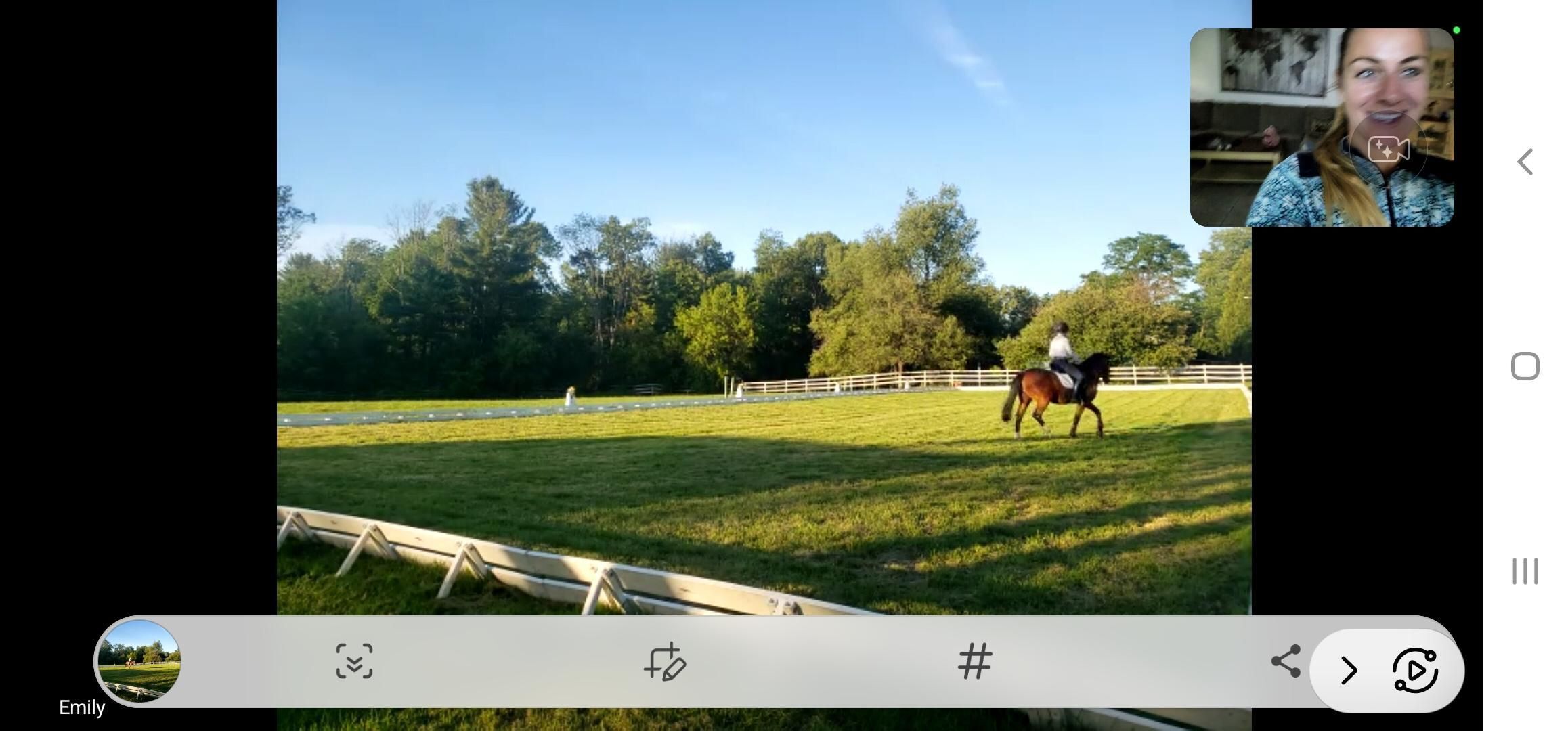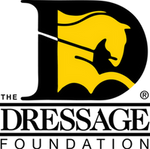
Lesson with Laura
Learning the business: Professional Mentorship Days
Dressage professional hopefuls will often spend years working under a mentor, or mentors, to understand a training and riding system to apply to their future riding/teaching/training career. Yet, despite working in another dressage professional’s business for years, very few truly understand all the details it takes to run a successful business… from managing client relationships to creating systems for tracking finances to systematic thinking about pricing and services to managing liability.
When I went pro, I was no different.
Fortunately, I did have some business experience outside the horse world, and just like everything else in this sport, the will power to never stop learning…. Especially on the business side of things!
That is why I used the grant from The Dressage Foundation’s (TDF) Karen Skvarla Fund for Young Professionals to not only move my riding/training knowledge forward with Laura Ashley Dressage (Wellington, FL) but also work on my business skills through a Professional Mentorship Day with Michelle LaBarre Dressage (Verona, NY). I am very grateful for TDF’s support of my holistic success as a young professional.
But what is a Professional Mentorship Day?!
To be honest, I wasn’t sure either. I may have even made it up. However, as a young professional, I admired the business and reputation Michelle built over the years and knew I had a few (OK, many!) things I could learn from her, so I sketched out a plan.
Let’s fast forward… My professional mentorship days were everything I had hoped for. As someone who actively supports and advocates for future professionals (through an online educational platform called The Rising Equestrian Pro), I am writing this article to provide a rough outline to make this experience replicable for others. Future and young pros, I want to encourage you to think about this option!
So, I’ll share how YOU, as a future or young pro, can set up a Professional Mentorship Day, how to make the most of it, and my top take-aways (there were so many!).
SET IT UP
- Reach out to a professional whose business you admire. Consider an equine professional who is well-respected, has a strong rapport in the industry, and runs a very organized business. He or she will have his or her services structured and explained well, know his or her niche in the industry with well-aligned marketing, has a high-demand or waitlist for their services, etc. There are excellent professionals serving all levels of our sport… don’t limit yourself to the most nationally well-known professionals (those making national teams, etc.). Look for someone who’s really figured out the business side of things.
- Get out of your immediate area. It’s best to hit the road. Your mentor will be more comfortable sharing numbers with you if you’re not likely to be sharing the same market down the road in a few years. Talking about money (prices, income, expenses) can be a sensitive topic but this is absolutely what you are looking to talk about. Find someone who is comfortable sharing these details.
- Offer to pay a day rate for mentorship or offer to work it off through multiple visits. Your mentor is spending time out of their day talking with you. They need to be paid for their time, whether they are training you on a horse or off the horse. Discuss the rate with them but don’t be afraid to get creative… many pros could consider a trade for working!
ARRANGE THE DAY
- Plan on shadowing the entire day, from beginning to end, with at least a 1.5 hour ‘office session’ scheduled to talk numbers and ask tough questions in private. At the same time, do what works for you… I have a young (human) baby, so I split my “day” into two shorter days.
- As you see fit in the routine, ask questions related to stable management approaches/decisions, the training programs of the horses you see, and the training programs of students taking lessons. Use the opportunity to see all angles of the business.
- Ask to stand in the ring as horses are being ridden and lessons are being taught. Remember, you want the perspective of the trainer.
- Ask if taking photos/videos is alright. If so, document the experience for yourself and others!
- Gratitude. Chip in where you can. Extra idea? Bring a morning treat for barn staff and team.
MY TOP TAKE-AWAYS
- Start your business small…grow when you’re ready.
- Structure your working student program to ensure excellent care for horses but also invest deeply in the students! I saw excellent relationships in action there.
- When structuring services and pricing, not all activities have the same profit margin and that’s OK. Think ‘big picture’ to support clients’ goals long-term.
- Ask for additional perspectives when outlining long-term contracts (i.e., contracts between the professional and facility owner). Clear contracts are beneficial for both sides. (It reminded me of a quote from Brené Brown, “Clear is kind.”).
- Never stop investing in your own knowledge. (Plus, education related expenses is a line-item for tax write-offs. Budget for this line-item in your business.).
- Your health is critical to your business. Personal nutrition, fitness, mental health, relaxation, and suppleness (stretching, massage) are all important aspects to consider.
- Know your “First Principle”. What will you not compromise in your riding or business to make money? Decide the culture of your program in the beginning.
- Use slower times in your business to invest in yourself and your business.
- You need skills and strategies to manage client relationships, just like any other category of knowledge. Many professionals rely on a licensed therapist to help build these skills.
Professionals tend to leave the industry not because they aren’t good horse trainers or teachers, but because they cannot manage the business side of the industry.
It’s so important for us professionals to not only build our skills to work in the business (riding, teaching, training, etc.), but take the time to step back and work on the business (using financial numbers to help us restructure services and prices, working on ourselves to improve client relationships, etc.).
Without a doubt, this experience helped me take a step back and reflect on my own training/teaching business in upstate New York. I returned with a fresh sense of energy and structure to focus on what matters: the horses and students.
Cheers to chasing the dream,
Emily
P.S. If you have questions about my experience or want to brainstorm about how you can set up your own Professional Mentorship Day, reach out to me on Instagram or Facebook at @risingequestrianpro. I can’t wait to hear from you!
Click here to learn more about Emily's Professional Mentorship Day!
